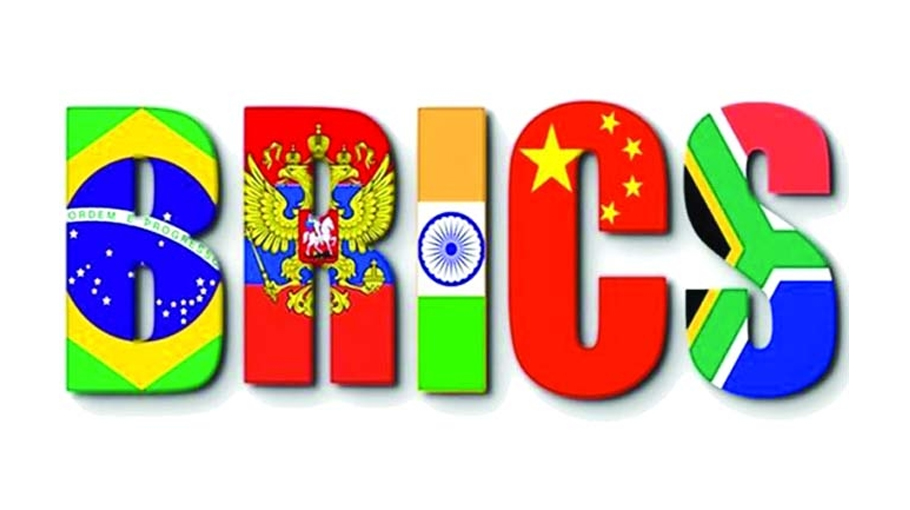Why Bangladesh needs to wait to join BRICS?

Bangladesh is considered as important for partnership in the region’s ever-changing geopolitical landscape due to its location which strategically is bridging the gap between South Asia and the rest of Indo pacific. BRICS is the economic bloc of emerging national economies consisting of Brazil, Russia, India, China and South Africa. As the BRICS looks to expand, numerous countries have shown increased interest in joining the BRICS group. The issue of Bangladesh joining BRICS is nothing new. The issue came to the fore after Prime Minister of Bangladesh Sheikh Hasina held a meeting with South African president Cyril Ramaposha in Switzerland earlier this year. Bangladesh joined the New Development Bank established by BRICS in 2021. Bangladesh formally applied to join BRICS on 19 June 2023. Following this, analysts have started weighing the gains from being part of the bloc that aims to create a new global order to counter the dominance of US and its currency dollar. Bangladesh’s interest in BRICS has substantial geopolitical implications, especially considering the state of relations between Dhaka and Washington in recent years.
Prime Minister Sheikh Hasina said that "We were with BRICS from the time of its formation. Now we officially want to be its member as our plan is to have diverse options when it comes to development and bilateral relations. We don't want to depend on just one or two options for the overall growth of our country."
South African President Cyril Ramaphosa said that there is a possibility of taking a decision on increasing the number of members of the alliance at the BRICS summit. Bangladesh’s capital Dhaka has new Indo-Pacific policy which emphasizes neutrality and achieving close economic engagement with both China and the US.
The influence of a country on any regional order depends on a few factors including its national strength, international mobilization capabilities, regional pattern, and regional circumstances. There was a time when the world was divided into two poles-North Atlantic Treaty Organization (NATO) led by the United States and Warsaw Pact headed by former Soviet Union. However, in the present world it has changed. Since the end of the World War II, the United States has strengthened its dominance over the order of the Asia-Pacific region by establishing a gigantic military alliance system. In the field of economics, the United States has long been a major trading partner and source of investment for countries in the region. It also has a deep political penetration in the region through its allies and partners. Therefore, in terms of politics, economics and security, the United States has an important influence on the Asia-Pacific region. It also plays a role that cannot be ignored in the regional order. The United States led network is prevailing in the current world to the extent that United States imposed sanctions on Bangladesh’s elite paramilitary force, accusing it of extrajudicial killings, enforced disappearances and human rights violations in the year 2021. In the same year, US President Joe Biden did not include Bangladesh in his 110-country-strong Summit for Democracy. In May this year, US Secretary of State Antony Blinken announced a new visa policy to ‘promote democratic elections in Bangladesh’. Under this policy, the US can restrict visas for individuals it believes are responsible for undermining the democratic election process in Bangladesh. Perhaps predictably, Bangladesh’s government opposes the policy and the opposition party is in favor of it. Since coming to power in 2009, Bangladesh’s Prime Minister Sheikh Hasina and her government have faced vocal US criticism over human rights issues and the controversial 2014 and 2018 elections.
In response, one influential parliamentarian in Bangladesh claimed that the US was seeking control over the strategically important Saint Martin Island, and our prime Minister Sheikh Hasina has alluded to a regime-change conspiracy, musing that ‘maybe the US doesn’t want me in power’.
Most recently, the US joined with a dozen other Western countries in issuing a statement condemning the violence that broke out last month following a brutal attack on an independent candidate, Ashraful Alom, who had stood against the ruling party candidate in a by-election.
Dhaka responded by summoning the US and other nations’ ambassadors for an explanation, saying they had shown an ‘undiplomatic attitude’. Despite these challenges in the relationship, Washington has been consistently seeking Bangladesh’s involvement in the US Indo-Pacific strategy. Bangladesh’s announcement of its interest in BRICS would seem to halt those efforts.
China, meanwhile, has seized the opportunity to demonstrate its unwavering support for the current regime. While promoting democracy in a self-confessedly democratic country may not be unfair, China’s newly appointed ambassador to Dhaka, Yao Wen, felt it necessary to write a column criticizing US concerns about democracy in Bangladesh. A Chinese foreign ministry spokesperson then accused the US of meddling in Bangladesh’s internal affairs under the pretext of democracy and human rights, and affirmed China’s readiness to work with Bangladesh to oppose ‘power politics’. Moreover, Planning Minister of Bangladesh Mr. MA Mannan quoted Chinese Ambassador in Dhaka Yao Wen as saying, “China will not interfere in any internal matter or in the political affairs of any country such as Bangladesh”.
Experts are of the view that in the current regional context, Bangladesh’s inclusion in BRICS may be seen as an implicit rejection of the US and its Indo-Pacific strategy. They have also asserted that it can be seen as the product of a natural evolution of the warm relations the regime has enjoyed with BRICS nations since coming to power.
German-based Deutsche Welle (DW) and Indian media Anandabazar quoted diplomatic sources saying a message has been conveyed to Washington that "New Delhi is not happy with the current role of the United States on the upcoming national elections in Bangladesh." India believes "weakening the Sheikh Hasina government in Bangladesh will not be good for either India or the United States." Earlier in June this year, US National Security Council Coordinator for Strategic Communications John Kirby said that “Washington wants Delhi to speak for its bilateral ties with Dhaka”.
Now as the BRICS group is not being expanded in the Johannesburg summit due to differences of views among the members of the club, as a result, interested countries including Bangladesh shall have to wait to join the club--Brazil, Russia, India, China and South Africa. In this regard, the experts are of the view that India as always is likely to have played a vital role by advising balance on both sides since it is close to both the US (its strategic partner) and Bangladesh (its most trusted friend in South Asia). Their view is based on the fact that India and Brazil don't want the forum BRICS to turn into an anti-West one although China was very interested in expanding BRICS as an anti-western platform.
In conclusion it can be said that the world should continue to watch events in Bangladesh closely. What takes place in this crucial buffer zone in the Indo-Pacific over the next several months will have implications across the globe.
Tasmiah Nuhiya Ahmed is a Diplomatic Correspondent of Bangladesh Post
Stationed at Johannesburg.




